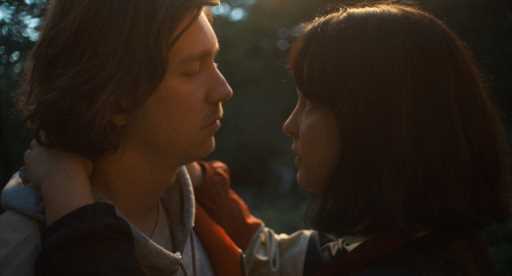In 2007, just after her breakout movie role as brittle, sizeist mean-girl Amber Von Tussle in Adam Shankman’s “Hairspray,” actor Brittany Snow took to the pages of People to talk about her own longtime battle with anorexia. But in a cultural moment that was peculiarly hostile to the mental health crises of young female celebrities — it was also the year that Britney Spears shaved her head — the response to her op-ed was dismissive. Now, 16 years and something of a sea change in social attitudes later, the sheer sincerity of Snow’s directorial debut is quite the rebuttal to those who accused her of mere attention-seeking back then. Unmistakably informed by personal, painful experience, “Parachute” pulls its ripcord early, determined to let its self-critical, struggling characters drift down to the soft landing Snow herself was not granted.
The film, which Snow co-wrote with Becca Gleason, is deeply felt and certainly proves that the actress, still best known for the popular if aca-uneven “Pitch Perfect” movies, has a promisingly deft directorial hand. Whether its unimpeachable honesty makes for particularly compelling drama is another question — one mostly answered in the affirmative by two excellent and engaging central performances. Thomas Mann gets the best showcase for his genuine, slightly goofy gallantry since “Me and Earl and the Dying Girl,” while an outstanding Courtney Eaton (“Yellowjackets”) proves unafraid to embody the darker, less sympathetic impulses of a character for whom embodiment is the whole problem.
Riley (Eaton) meets Ethan (Mann) on the very night she is released from a rehab facility where she has been undergoing treatment for various interlinked conditions, including an eating disorder, body dysmorphia, a fixation on her ex-boyfriend and an unhealthy addiction to Insta-glamorous social media doomscrolling. Her recovery program, which includes regular trips to a radiantly understanding therapist (Gina Rodriguez), has inconveniently mandated that she avoid dating for at least a year, and an attempt to break that rule that very first night ends in a fumbled pass.
Despite the ensuing awkwardness, the mutual attraction — which Eaton and Mann make sweetly, clumsily believable — is undeniable. The pair parlay it into the kind of passionate yet platonic friendship that constantly threatens to develop into something more, in montages that set scrappy, oddly analog-looking photos against pleasant, genre-appropriate indie pop. Ethan builds her a pillow fort. They watch true-crime serials together. He treks across the city in the middle of the night with frozen yogurt when she’s having a bad spell. But is his constancy and thoughtfulness actually good for her or is it a form of enabling? Who is using whom? And would they maybe be much better off if they both stopped ceaselessly examining their own motives and just got on with the messy business of being in love?
There is not a lot more to “Parachute” as far as plot goes, with Ethan’s own issues — which are all to do with being too selfless, too patient and too forgiving, as though that in itself were his dysfunction — only sketchily related to his co-dependent relationship with his alcoholic father (Joel McHale). Soon, Ethan and Riley’s will-they-won’t-they/should-they-shouldn’t-they dynamic loses momentum as it becomes abundantly clear that they probably won’t, even though they definitely should.
It doesn’t help that the movie suffers from something of the same solipsism that Riley does: The supporting characters, like Riley’s preternaturally understanding BFF Casey (Francesca Reale) and her befuddled boss at the failing dinner-theater where she works (a lovely, surprising little cameo from Dave Bautista) are pushed into the periphery, along with the real-world perspectives they represent. Meanwhile Riley — cocooned in a plush New York apartment paid for, along with an apparently unlimited credit card, by her absent, distant mother (Mlé Chester) — doesn’t have to contend with ordinary problems like meeting the rent or paying the phone bill. Perhaps these privileges are one reason her disorder has so much room to thrive.
Of course, the remove from the real world is part of the point. A disorder like Riley’s is harmful precisely because it traps its victim in cycles of self-loathing from which they cannot escape, and over which they can only exert control by further punishing themselves. But observing Riley with such careful compassion — even Kristen Correll’s muted, de-glammed photography looks softened and slightly fuzzy, as though all its sharp edges have been put away — to the exclusion of everything else eventually becomes wearying, despite Eaton’s watchability. Powered by good intentions and therapeutic orthodoxies about the necessity of learning to love yourself, “Parachute” may be truthful but can wander close to trite, as we repeatedly witness a vibrant young woman grabbing helplessly at anything and anyone to cushion her fall, while waiting for her to realize — as only she can, for herself — that she isn’t falling at all.
Read More About:
Source: Read Full Article


